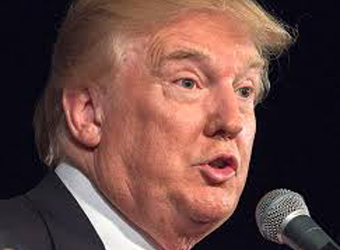The special counsel investigating whether Russia tried to sway the 2016 U.S. election has taken over FBI inquiries into a former British spy’s dossier of allegations of Russian financial and personal links to President Donald Trump’s campaign and associates, sources familiar with the inquiry told Reuters.
A report compiled by former MI6 officer Christopher Steele identified Russian businessmen and others whom U.S. intelligence analysts have concluded are Russian intelligence officers or working on behalf of the Russian government.
A spokesman for special counsel Robert Mueller declined comment. The FBI also declined comment.
Three sources with knowledge of Mueller’s probe said his investigators have assumed control of multiple inquiries into allegations by U.S. intelligence agencies that Russia interfered in the election to benefit Trump, a Republican.
Russia has repeatedly denied any meddling in the election.
Two officials familiar with the investigations said that both Mueller’s team and the Senate Intelligence Committee are seeking any evidence that former Trump campaign manager Paul Manafort or others who had financial dealings with Russia might have helped Kremlin intelligence agencies target email hacking and social media postings undermining Trump’s election opponent, Democrat Hillary Clinton.
On Wednesday, the Senate panel’s chairman Richard Burr told reporters that the issue of whether Trump’s campaign colluded with Russia remains an open question.
“We have not come to any determination on collusion,” Burr said.
Trump, who has called allegations of campaign collusion with Moscow a hoax, has faced questions about the matter since he took office in January. Trump was told by former FBI director James Comey that Steele’s report contained salacious material about the businessman-turned-president.
Trump was told by former FBI director James Comey that Steele’s report contained salacious material about the businessman-turned-president.
Burr said on Wednesday that the Senate panel had made several attempts to contact Steele and to meet him and “those offers have gone unaccepted.”
“The committee cannot really decide the credibility of the dossier without understanding things like who paid for it, who are your sources and sub-sources,” Burr said.
Burr said the panel wanted to finish its investigation by the end of the year.
Although several news organizations, including Reuters, were briefed on Steele’s dossier before the election in November, most decided not to report on the material because its inflammatory and sometimes salacious content could not be verified.
In a report published in January four U.S. intelligence agencies said they took the dossier’s allegations seriously.
Separately, three Russian businessmen, Mikhail Fridman, Petr Aven and German Khan have sued Washington investigations firm Fusion GPS and its founder, Glenn Simpson, with allegations that they were libeled in Steele’s dossier.
A spokeswoman for Simpson and Fusion GPS declined to comment on the lawsuit filed on Tuesday in U.S. District Court in Washington.
The lawsuit said that Steele’s reports were “gravely damaging” to the businessmen because they accused them “of criminal conduct and alleged cooperation with the ‘Kremlin’ to influence the 2016 presidential election.”
The information on Trump collected by Steele, whom officials say was one of MI6’s most respected Russia hands, was laid out last year in political “opposition research” initially financed by supporters of one of Trump’s Republican primary election opponents. After Trump won the Republican nomination in July, backers of Clinton picked up the support of Steele’s work.
The lawsuit said the dossier’s allegations are false in implying an improper “ongoing” relationship between the businessmen, the Alfa Group financial company in which they were investors and Russian President Vladimir Putin, and that a Russian government official acted as middleman in such contacts.
Source: Reuters


